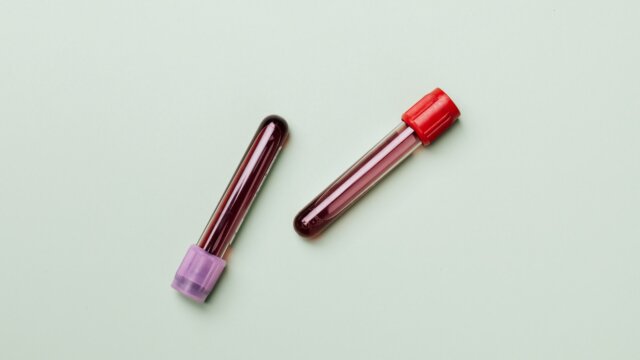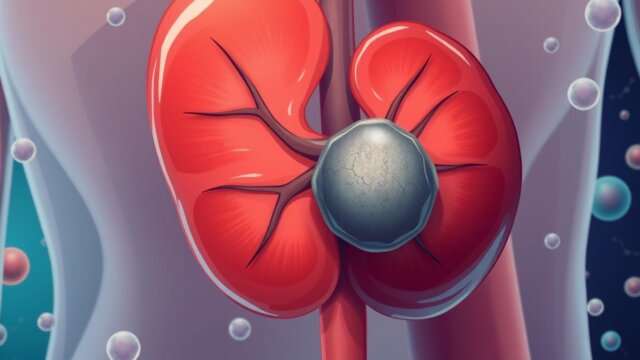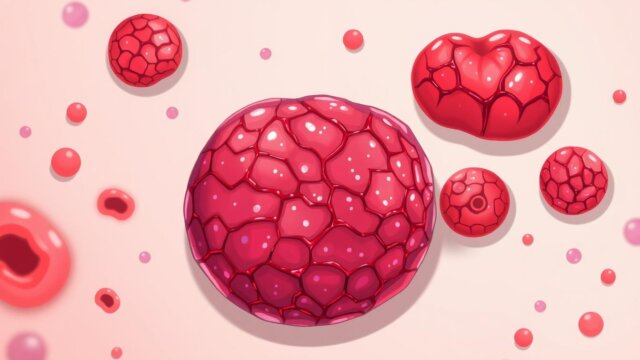FTC disclaimer: This post may contains affiliate links and we will be compensated if you click on a link and make a purchase.
Did you know that fish oil for children and adolescents is just as important as adults?
The benefits of long-chain omega-3 fatty acids in childhood are extensively documented. They play a crucial role in optimizing cognitive, behavioral, and visual development, but they also protect against the development of cardiovascular disease.
Fish oil offers many benefits for children, including increased brain development, reduced autism and ADHD symptoms, increased concentration, and protection from future diseases like heart disease and high cholesterol.
Of the omega-3 fatty acids, DHA is essential because it is required for optimal growth, development, and functioning of the brain and eyes.
Significant research on DHA during pregnancy and lactation stages of life and the infant’s development has confirmed a specific role for this omega-3 fatty acid.
A developing fetus obtains DHA from the mother and after birth from breast milk. DHA is also supplemented in infant formulas.
Breast milk provides a reliable source of Omega-3 fatty acids during infant development. The majority of infant formulas are supplemented with these fatty acids to mimic the composition of breast milk and offer the same benefits.
However, when the child is accustomed to having foods other than Breast milk, then reliance on dietary sources of Omega-3 fatty acids increases.
Why omega 3 for children?
As you probably already know, omega 3s have many benefits for everyone. Some of the more important ones for parents include relieving the symptoms of many academic and physical problems.
Children who aren’t getting enough omega 3s can display symptoms of:
- Dyslexia
- ADD and ADHD
- Anxiety or depression
- Reduced vision
- Academic and social problems
- Behavior issues
- Difficulty sleeping
Omega 3s are not a cure-all for every instance of these problems, but they are an excellent first step.
Given that omega-3 deficiency can cause all of these issues, it’s worth trying to increase omega-3 intakes before turning to pharmaceuticals.
Why does all of this happen? It’s essential to remember that the brain is 60% fatty tissue.
That means that not having the right fats has a detrimental effect on young brains developing and growing.
Let’s look into the health benefits of Omega-3 fatty acids for children.
Omega-3 Health Benefits for Children
You know the many health benefits of fish oil for adults, but did you know that children experience equal benefits?
Studies show the benefits of fish oil supplements are as plentiful as those for adults.
Learn how your children can benefit from omega-3, how much they need, and which supplements to choose.
Omega-3 fish oil for Children’s Brain Development
There is considerable evidence from population studies that higher maternal intakes of fish and seafood containing long-chain omega-3 fatty acids such as DHA and EPA can benefit neurodevelopmental outcomes in children 4-8 years of age.
The gradual growth of DHA in the brain has been found to progressively increase in the cerebral cortex up to 18 years of age.
Studies show evidence for dietary DHA supporting optimal mental and visual performance.
Recent studies report that increased intakes of DHA and EPA can also potentially improve health in growing children.
According to studies, healthy 4-year-old children were given 400 mg DHA (or placebo) per day for four months.
As a result, the higher blood levels of DHA were significantly and positively associated with improved scores on the Peabody Picture Vocabulary Test.
In recent years, several studies have recommended intakes of DHA and EPA in addition to alpha-linolenic acid to support optimal neuronal functioning and overall health in normal children.
Omega-3 Fish Oil for Children with ADHD
Research on omega-3 fatty acids in children with ADHD is ongoing.
Some of the first studies in this area showed that children with ADHD have a lower level of long-chain omega-3 fatty acids in the blood compared to children of the same age without ADHD 2.
This finding sparked research on the effects of omega-3 supplementation in children with ADHD.
In a study of Japanese children with ADHD, supplementation of 610 mg/day of long-chain omega-3 fatty acids, primarily DHA in foods, for two months improved aggressive behavior.
On the other end, a supplementation study of 350 mg/day of DHA alone for four months found no effect on ADHD symptoms.
Other studies have examined the effects of EPA, DHA, and other dietary fats on ADHD symptoms.
A study that supplemented children with ADHD for four months with a mix of omega-3 and omega-6 fatty acids found some improvement in ADHD symptoms.
Omega-3 Fish Oil Effective in Depression in Children
It was observed that approximately 2% of the children attending pre-school and school had shown signs and symptoms of depression.
The signs and symptoms of depression mainly observed are:
- Decreased interest in favorite activities
- Extremely sensitive to failure or rejection
- Difficulty in initiating or maintaining the social relationship
Further, the World Health Organization has stated that more than 4.4% world population suffers from Depression, of which depressive disorders affect 2% of children and 5 to 8% of adolescents.
A study has revealed that Omega-3 fatty acids effectively treat the depressive disorder in children and adolescents.
Moreover, another study has also stated that Omega-3 fatty acids rich in EPA have shown promising results in treating depression in children and adolescents.
But, some studies have shown that Omega-3 fatty acids do not help treat the major depressive disorder, and very few children and adolescents have taken advantage of it.
Omega-3 Fish Oil Improve Cognition, Anxiety, Impulsivity
In a study of children with a related disorder, dyslexia supplementation with omega-3 and omega-6 fats for three months improved cognition, anxiety, impulsivity, and other ADHD-related symptoms.
Moreover, one study has stated that long-chain Omega-3 fatty acids have been shown to lower anxiety and improve cognitive parameters.
Another study has stated that DHA and EPA in Omega-3 fatty acids are effective in mood disorders, particularly depressive symptoms like unipolar or bipolar disorders.
Omega-3 fatty acids Lower Hostility
An epidemiological study published findings that fish consumption as a measure of EPA and DHA intake from the diet was associated with hostility in urban young adults (18-30 years old).
In this study, those who ate at least some fish had lower hostility than the young adults who did not consume fish.
In particular, dietary intake of DHA was inversely related to hostility; those with a greater intake of DHA scored lower on the hostility questionnaire administered in the study.
Omega-3 fatty acids Improve behavior patterns.
According to a study, fish oil is brain food for kids. It was noted that parents reported improved behavior in their children after just six weeks of daily doses of fish oil.
The behavior changes ranged from dramatic improvements in ADD/ADHD symptoms to higher performances in motor skill activities, IQ levels, reading, and spelling.
The most notable changes were in the children’s concentration and behavior. Also, children who had previously performed six months below age level perform at age level in just three months.
Omega-3 Improves symptoms of Asthma, Allergies, and Cystic Fibrosis.
Asthma, allergies, and cystic fibrosis (CF) have been studied for the effect of omega-3 fatty acids on disease symptoms.
In a study, it was concluded that Omega-3 fatty acids effectively improve respiratory outcomes in children. Further, the findings of the studies suggest that omega-3 fatty acids supplementation may influence children with asthma.
The results for asthmatics are conflicting and need more relevant studies concerning the health effects of Omega-3 fatty acids in Asthma patients.
However, other research studies have stated that because of the anti-inflammatory properties of Omega-3 fatty acids, including DHA and EFA, it has shown protection against allergies and asthma in children.
Research studies suggest that Omega-3 fatty acids can benefit anti-inflammatory effects for a chronic conditions like Cystic Fibrosis in children.
A pilot study was conducted on Cystic Fibrosis patients by giving eight months of EPA and DHA supplementation.
As a result, increased content of long-chain Omega-3 fatty acids, less inflammation, and improved CF lung function was observed.
There needs to be more research before suggestions can be made for treatments with omega-3 fatty acids.
Omega-3 fatty acids food sources for children
The best and most pleasant way to get Omega-3 fatty acids is through diet.
The highest plant sources of Omega-3 fatty acids, including DHA and EPA, are:
- Seaweed and algae
- Walnuts
- Chia seeds
- Hemp seeds
- Flaxseeds
- Tofu
- Soybeans
Other foods to include are:
- Cauliflower, boiled
- Cabbage, shredded and boiled
- Romaine lettuce
- Broccoli, steamed
- Brussel sprouts, boiled
- Winter squash, baked
- Collard greens, boiled
- Spinach, boiled
- Shrimp,
- Strawberries
- Green beans
- Kidney beans
- Raspberries
The best fish sources for your children are:
- Salmon
- Albacore
- Tuna
- Lake trout
- Mackerel
- Herring.
To lower the risk of mercury and other contaminants, experts recommend children eat no more than 12 oz of fish per week.
Limit albacore tuna servings to 6 oz per week due to high mercury content. Other fish you need to avoid are shark, swordfish, King mackerel, and Golden Bass.
If your children are picky eaters and don’t care for any of these foods, you can always give fish oil supplements to your children. Designed specially with children in mind, they contain the right amount of omega-3 and taste good.
Including fish oil in your child’s diet is easy, and the list of benefits is extensive.
Please talk with your pediatrician about the benefits of fish oil and ask his opinion about including it in your child’s diet. He can give you specifics about the right amount of fish oil for your child.
Omega-3 Supplement for children
You can also give your kids omega-3 supplements. Don’t worry about buying supplements specifically for children.
When looking for a good supplement for your children, there are a few things to consider.
What type of supplement will your children take?
You can get omega-3 supplements in pills, oils, or even candy. Some kids do well with a gummy supplement that they can chew. Others like flavored cod liver oil syrup.
Some parents also have luck with putting straight liquid fish oil into apple juice or other drink that helps to hide the fishy flavor.
You may want to experiment with a few brands to determine what your children prefer.
Does the supplement have a good DHA/EPA ratio?
Look for a 2:1 DHA to EPA ratio of fish oil.
Better quality fish oil is generally from salmon, cod, or halibut. Be wary of shark or albacore tuna oils as they are predatory fish and likely have more toxins.
Prices vary depending on the brand and the merchant you purchase from. The best prices on fish oil for children are often found online, mainly if you can find a merchant offering free or discounted shipping.
The best fish oil for kids will be a brand that your children enjoy taking, has a good ratio of DHA to EPA, and comes from high-quality fish.
The Daily Routine
As with all supplements, consistency is vital.
Fish oil will have the most benefits if taken regularly and made as part of your child’s daily routine.
A high-quality supplement taken daily will provide health benefits as your child grows and develops.
It’s impressive that simply adding a fish oil supplement to your child’s daily regimen can make a massive difference in the well-being and health of your kids.
Recommended Omega-3 Fish Oil Dosage
The United States Institute of Medicine agreed to Adequate Intake (AI) ranges for macronutrients (carbohydrates, protein, and fats) in 2002 for all age groups.
This report’s specific requirements for omega-3 fatty acids focused on alpha-linolenic acid (ALA).
The AI for ALA is 0.7, 0.9, and 1.2 grams per day for children aged 1-3, 4-8, and 9-13 years.
Interestingly, 10% of the AI should be from the longer-chain omega-3 fatty acids EPA and DHA; 70, 90, and 120 mg per day for the age groups stated previously.
Since caloric requirements are similar to adults, the ALA requirements for adolescents are the same as the requirements for adults.
Conclusion
Omega 3s are important for everyone of all age groups, but they are vital for children. As they grow and develop, they need proper nutrition to help them grow properly.
Omega 3 for kids is one of the best ways to make sure your kids are healthy, happy, and well developed.








